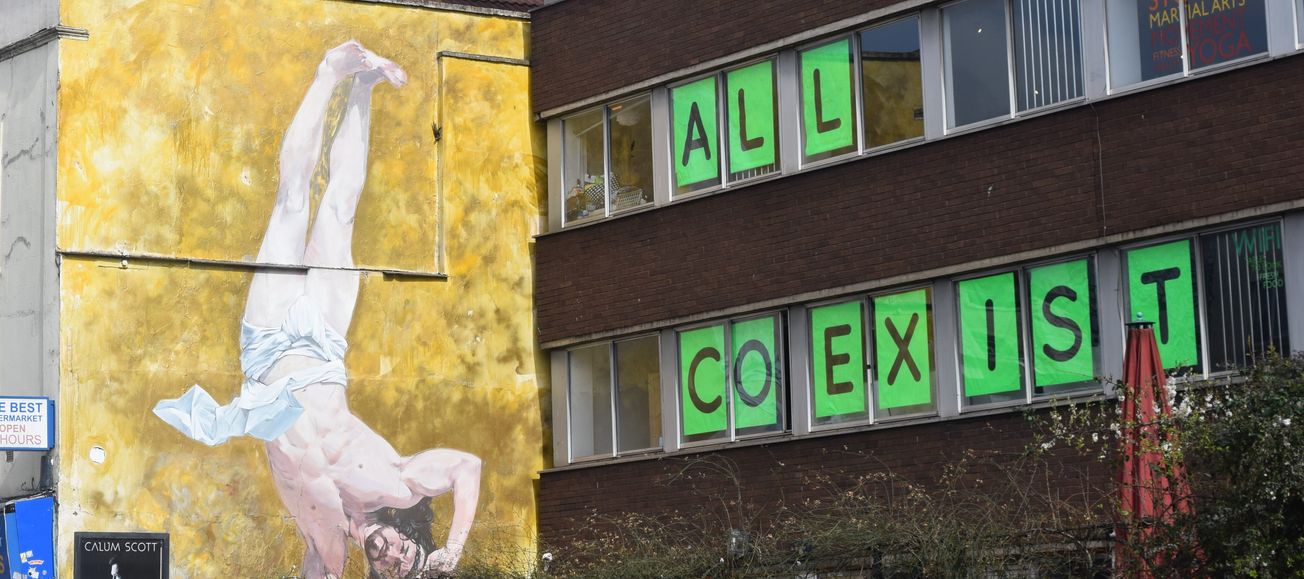By Ewan Thomas-Colquhoun, Third Year German and Russian
Bristol University’s pledge to tackle noise complaints by funding local Avon and Somerset police night-time patrols to the tune of £25,000 a year has attracted a lot of attention. From the BBC’s Inside Out West feature to the most recent article from the Mail Online, it seems the media is enjoying its opportunity to pitch student against resident once again, the noisy newcomers against the law-abiding citizens who just want a good night’s sleep.
I would argue that precisely this discourse reveals the root cause of the problem.
Amongst the maelstrom of below the line comments arguing that either: “Students will be students and people should put up with it or leave” or that “students are a plague in our communities and should be thrown out of university for noise complaints”, it’s easy to lose sight of the nuance and decide to throw your lot in.
Resident vigilante fighting to preserve the community as it should be, or disgruntled young person tired of the older generation’s attempts to preserve an outdated idea of society? Take your pick.
Central to bridging the gap is the recognition that students are residents too
Mutual communication and respect between longer-term residents and students seem to be breaking down and, in its place, a mistrust and an attitude of blame has set in. Just take the anxiety expressed by students on Bristruths regarding their addresses being posted online by the “Noise Pages” website, and compare it to the rhetoric of that same website declaring that student parties are “akin to an act of violence”, and it’s clear that there is a problem that needs sorting.
From my perspective, central to bridging this gap is the recognition that students are residents too. This is stating the obvious, but it’s a fact that has been forgotten in the argument that police patrols are “protecting residents from students”. This kind of rhetoric only reinforces that students aren’t viewed as full residents.
Whilst this semantic shift seems a minor point, a Bristol where students are encouraged to see themselves as residents first and students second may well be a calmer and cleaner place.

Let’s also not forget that other student residents may be bothered by late-night noise, and this is forgotten if all students are put in the same boat (as the discussion often does). Still action is required from both sides. Students have to make themselves visible in their communities for more than just loud parties, and residents must be approachable and understanding of their new neighbours.
This process requires a dialogue that is more than angry blogs and Epigram articles.
This is why the university’s decision to give the police more teeth to clamp down on student parties seems rather absurd. Taken that the overarching problem is a lack of mutual respect and cohesion within communities, rowdy parties are more a symptom, and stricter policing will do little to change the true cause.
A forum should be introduced for students and residents to communicate more freely
In truth, this decision could even make things worse. It’s not difficult to see how resentment would build on the side of the students; if you think your neighbour is informing on you to the police, it’s hard to see a way that you could come together and relate on one level. At the same time, residents who regularly see police cars patrolling their streets may grow to think of the students as more of a threat than they really are.
The university needs to change tack and use this money to do more than pay lip service to those complaining.
A forum should be introduced for students and residents to communicate more freely. Street level meetings at the beginning of the academic year, for example, could make the process of longer-term residents approaching students less daunting and give the students themselves more compassion when being told to turn the music down. Alternatively, a dispute mediation service could help solve concerns without letting them grow to the extent where people feel the need for getting the police involved.
These suggestions are of course imperfect, but in any case, paying the police to watch students in their private lives seems altogether unnecessary. Not only could it be taken as an intrusion, but it opens the question of how appropriate it is for the university to be involved to this level in students’ lives outside of their studies.
Whatever the solution, the idea of recognising students as residents is essential.
We need to take more responsibility in our communities, and other residents need to see us as more than a threat to the peace and quiet. Through a healthy discourse our communities can become better, but it’s on all of us to take part.
Featured Image: Epigram / Tom Taylor
Is Operation Beech overstepping the mark? Let us know









